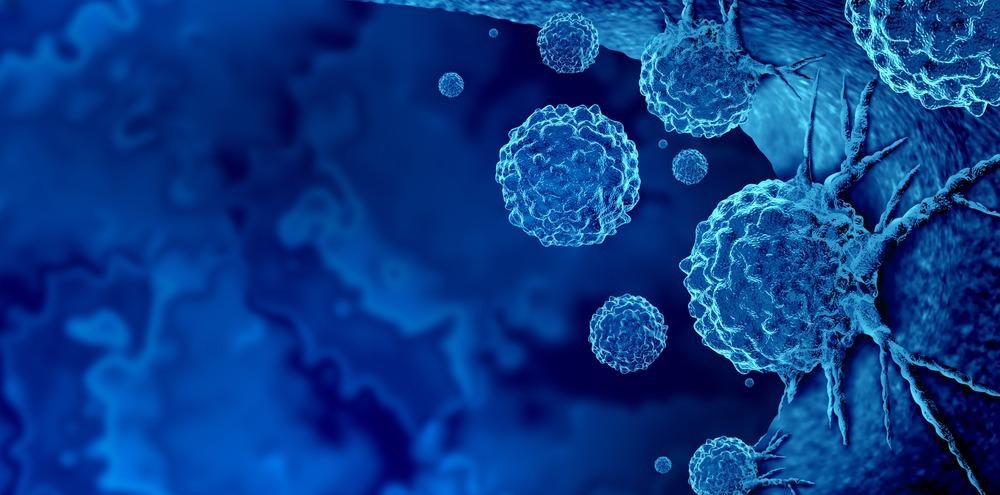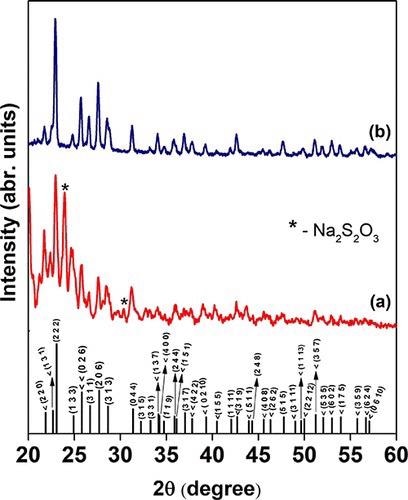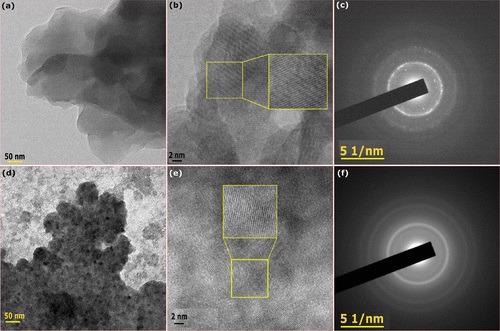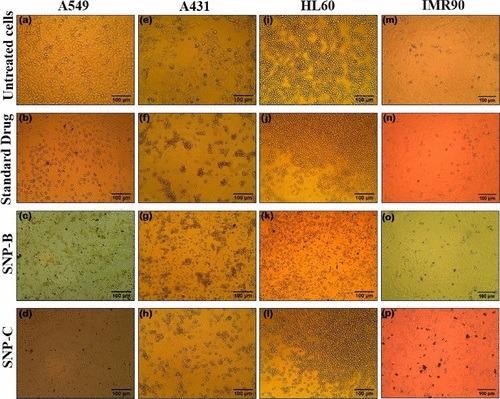Novel research published in the journal ACS Omega has increased the knowledge of nano-sulfur use as an antitumor agent through an investigation of nano-sulfur sheets and particles as well as their associated cytotoxic and apoptotic activity.

Study: Cytotoxic and Apoptotic Effects of Chemogenic and Biogenic Nano-sulfur on Human Carcinoma Cells: A Comparative Study. Image Credit: Lightspring/Shutterstock.com
The Necessity of Nanotechnology in Cancer Research
The vast field of cancer has become a public health threat for the global population, with high mortality rates depending on the type of cancer being diagnosed and the stage of diagnosis, which may affect the prognosis. This can be illustrated with the ubiquitous diagnosis of lung cancer, reported by the World Health Organization (WHO) Global Cancer data (GLOBOCAN) to have an incidence of 2.2 million cases and 1.8 million deaths in 2020 alone.

X-ray diffraction patterns of (a) SNP-C (sulfur nanoparticles) and (b) SNP-B (sulfur nanosheets). © Krishnappa, S., et al (2021)
With the advancement of medicine, cancer research requires the development of anti-cancer agents that can induce cell death or prevent further tumor growth.
This conclusion has led to exciting research utilizing two-dimensional (2D) nanostructures to benefit cancer research. While sulfur is widely used in various biological and biomedical applications, its use within a 2D nanostructure as an antitumor agent has thus far been an uncharted area.
The use of nanotechnology, which has various advanced areas of science and medicine, has enabled this field to be a pioneer for innovative development. The physicochemical properties of nano-related elements and materials are remarkable due to their nanoscale size.
While nanotechnology and nanomedicine for use in cancer therapeutics have already been established with various metallic nanomaterials and nanoparticles enhancing drugs to a tumor site or the diagnosis of cancer masses themselves, the use of sulfur in a nanoform as an anti-cancer agent is a novel area.
Nano-sulfur Research
Sulfur has been used for various functions due to its range of biological effects, from an ingredient in acne treatment to an antidote for acute exposure to radioactive material.

TEM images of (a) SNP-B and (d) SNP-C. HRTEM images of (b) SNP-B and (e) SNP-C. SAED patterns of (c) SNP-B and (f) SNP-C. © Krishnappa, S., et al (2021)
The intriguing nature of the nanoscale consists of the change in biological behaviors of materials that become more reactive with their decrease in size. Nanoparticles of sulfur, or otherwise known as nano-sulfur, have different biological activities compared to the microparticles of sulfur, illustrating significant changes even moving between its micro- and nano- sizes.
The higher solubility in water at a neutral pH enables nano-sulfur particles to ultimately change their properties through the formation of sulfides, increasing the production of polysulfides that interact with proteins and nonprotein groups.
Nano-sulfur particles have been established in literature for their functionality in various applications such as antimicrobial agents as well as lithium-sulfur batteries; however, the researchers have uncovered their effect on human carcinoma cells.
This research which has included the synthesis of nano-sulfur sheets/particles with exploration of its critical biological activity such as cytotoxic and apoptotic effects against human carcinoma cell lines could be revolutionary for the field of cancer research.
The researchers investigated the in vitro effects of utilizing biogenic nanosheets (SNP-B) and chemogenic nanoparticles (SNP-C) against different human carcinoma cell lines:
- human lung carcinoma (A549)
- human epidermoid carcinoma (A431)
- human promyelocytic leukaemia (HL60)
- human lung fibroblast (IMR90)
When analyzing the apoptotic nature of the nano-sulfur being used against the cancer cells as well as the cell cycle, the researchers found the cell cycle to be in a state of arrest before undergoing apoptosis or cell death. Additionally, further studies of caspase-3 expression investigation have led to an insight into the induction of apoptosis through nano-sulfur use, with the activation of caspase being indicated.
Interestingly, the biogenic nanosheets (SNP-B) used on IMR90 cells illustrated a higher specificity towards cancer cells than the included human lung fibroblasts (IMR90) cells.
The Potential of Future Cancer Therapeutics
This research could truly be revolutionary for the treatment of cancer, with the use of nano-sulfur sheets and particles being utilized as an anti-cancer agent and with potentially high specificity towards cancer cells. While limitations could include toxicity and adverse effects, this research is a building block with advanced potential.

Morphological changes of A549, A431, HL60, and IMR90 cell-lines un-treated (a, e, i, m) and, treated with IC50 concentration of the standard drug (b, f, j, n), SNP-B (c, g, k, o), and SNP-C (d, h, l, p) after 24 h treatment. © Krishnappa, S., et al (2021)
With critical tumors with poor prognoses leading to high mortality rates, cancer research is a field that requires continuous advancement.
In 2020, leukemia was reported to have an incidence of 474,519 and a mortality rate of 1,198,073 (GLOBOCAN). Through this innovative research utilizing nano-sulfur within an advanced function of inducing cell death and inhibiting cancer cell growth, novel cancer therapeutics with effective results can be a promising future.
Continue reading: Diagnosing Ovarian Cancer with Carbon Nanotubes.
Reference
Krishnappa, S., Naganna, C., Rajan, H., Rajashekarappa, S. and Gowdru, H., (2021) Cytotoxic and Apoptotic Effects of Chemogenic and Biogenic Nano-sulfur on Human Carcinoma Cells: A Comparative Study. ACS Omega, 6(48), pp.32548-32562. Available at: https://pubs.acs.org/doi/10.1021/acsomega.1c04047
Further Reading
Sung, H.; Ferlay, J.; Siegel, R. L.; Laversanne, M.; Soerjomataram, I.; Jemal, A.; Bray, F. (2021) Global Cancer Statistics 2020: GLOBOCAN Estimates of Incidence and Mortality Worldwide for 36 Cancers in 185 Countries. CA Cancer J Clin. pp209– 249. Available at: https://acsjournals.onlinelibrary.wiley.com/doi/10.3322/caac.21660
Sun, Q., Han, Y., Yang, Y., de la Fuente, J., Cui, D. and Wang, X., (2020) Application of DNA nanostructures in cancer therapy. Applied Materials Today, 21, p.100861. Available at: https://www.sciencedirect.com/science/article/pii/S2352940720303097?via%3Dihub
Disclaimer: The views expressed here are those of the author expressed in their private capacity and do not necessarily represent the views of AZoM.com Limited T/A AZoNetwork the owner and operator of this website. This disclaimer forms part of the Terms and conditions of use of this website.